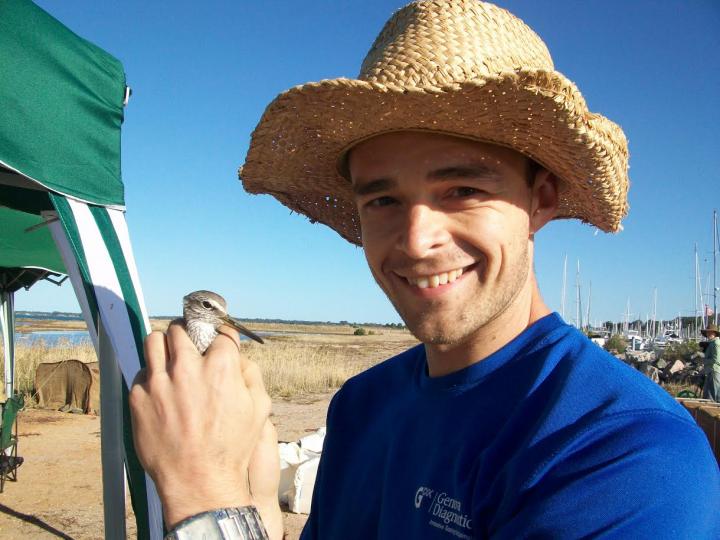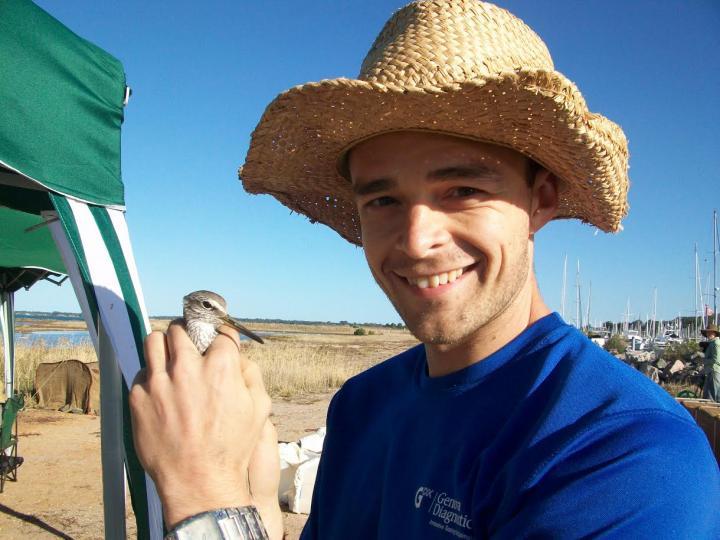
The Griffith University study investigated parasite interactions in wild birds and found they are a crucial indicator of malaria infection risk.
The study Co-infections and environmental conditions drive the distributions of blood parasites in wild birds has been published in the Journal of Animal Ecology.
An Environmental Futures Research Institute team, led by Dr Nicholas Clark, captured hundreds of wild birds across the South Pacific archipelago of New Caledonia and examined them for malaria and parasitic worms. Detailed DNA screening methods were used to distinguish different parasite strains in the animals.
They found that not only the bird's habitat but also the interactions between parasites can impact a bird's risk of malaria infection.
"Finding that interactions among parasite species may play important roles in determining a host's infection risk means that we need to look in more detail at how malaria and parasitic worms interact," says Dr Sonya Clegg, senior author of the study from Oxford University and adjunct researcher at Griffith Universities Environmental Futures Research Institute.
"It may advance our understanding of parasitic disease in both humans and wildlife."
The research revealed nine genetic strains of avian malaria as well as three strains of microfilaria, a parasitic worm that is similar to heartworm in dogs and filarial worms in humans. Malaria and other vector-transmitted parasites can be just as harmful to bird health as they are to humans.
Overall, researchers found that co-infections occurred in 36 per cent of infected birds.
"Studying the distribution of parasites in wildlife species is a fundamental first step to understand potential threats and to manage disease risks that may cause wildlife declines. By recording parasites in four bird species on different islands and in different vegetation types, we could identify factors that are most influential in driving a bird's risk of infection," says Dr Clark.
Dr Konstans Wells, of Griffith University, says thanks to advancements in computational tools, it is now possible to translate complex ecological relationships into mathematical models.
"We developed probabilistic models to ask whether or not one parasite species impacts the presence of others in the same bird individuals," says Dr Wells.
While malaria was found to be more likely to infect birds in certain forest types and on certain islands, the researchers found that infection risks for different parasites were not independent of one another.
In other words, a bird's risk of infection with one parasite depended on whether or not that bird also had a high risk of carrying a different parasite.
Dr Clegg says the finding that some malaria and parasitic worm species are more likely to co-infect birds than we may expect by chance implies that interactions among parasites within hosts is a crucial but so far neglected topic in wildlife research.
"By studying parasites in birds on south Pacific islands, we ultimately hope to understand how the fundamental mechanisms of isolation, invasion and other process can shape host-parasite interactions," she says.
###
To read the article visit http://onlinelibrary.wiley.com/doi/10.1111/1365-2656.12578/full
Media Contact
Stephanie Bedo
[email protected]
040-872-7734
@Griffith_Uni
http://www.griffith.edu.au





